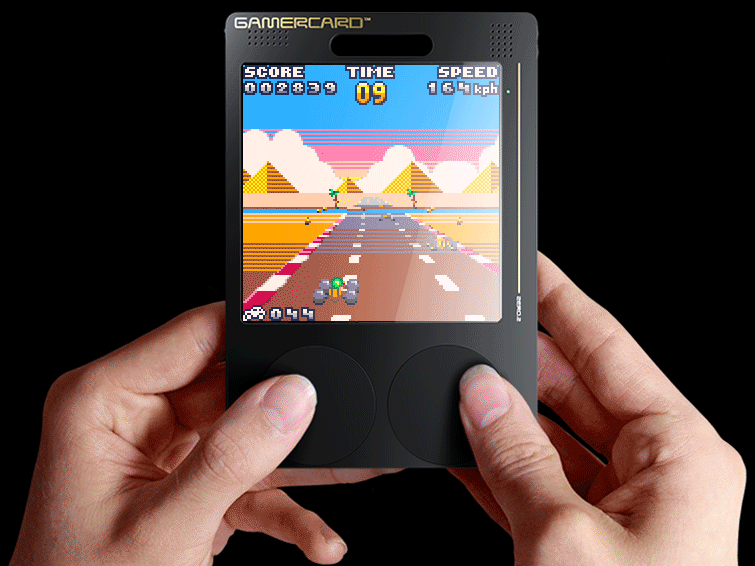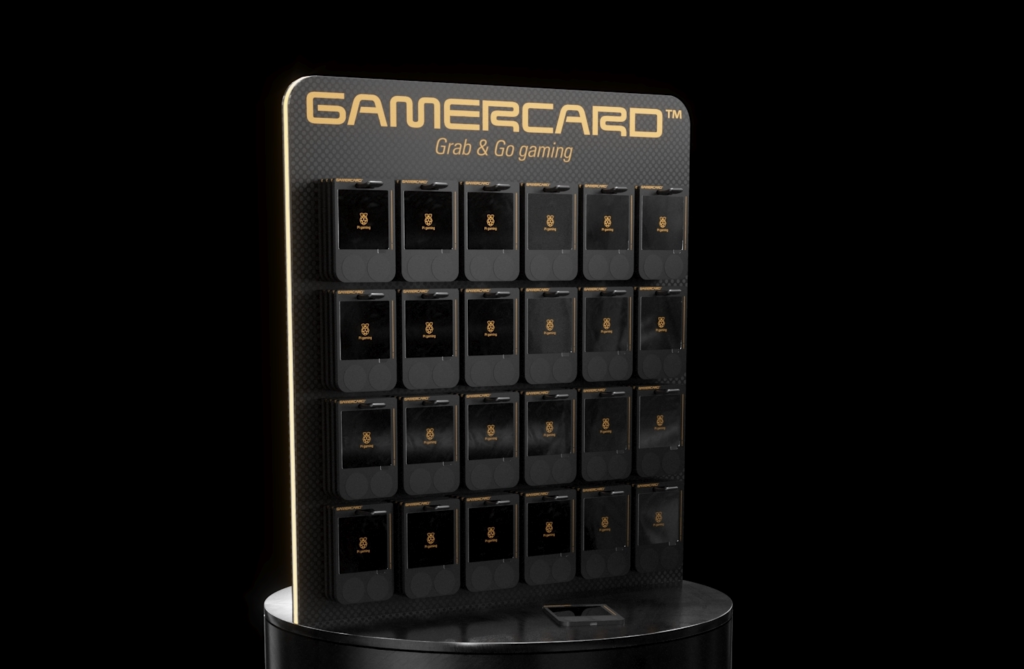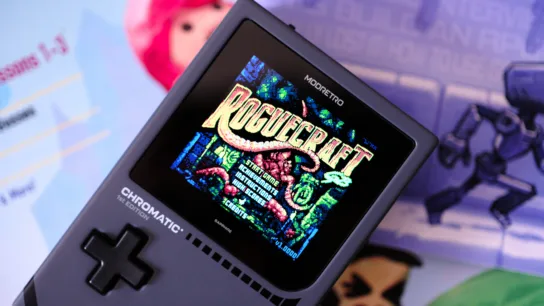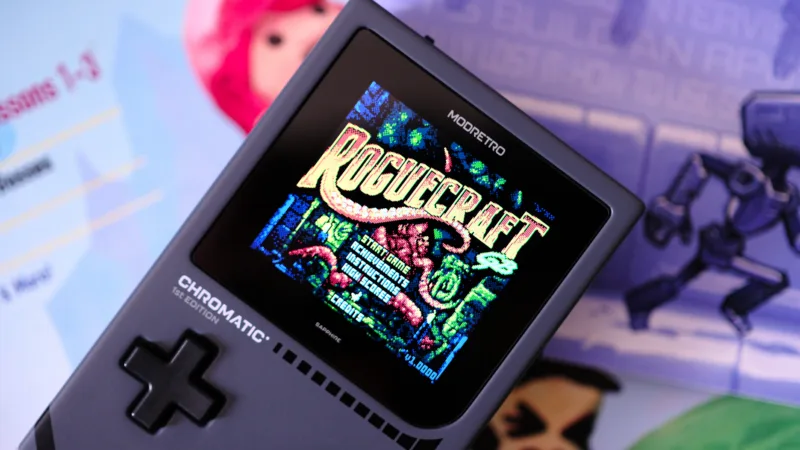There’s a new retro handheld on the market, and it comes from Grant Sinclair, who just so happens to be the nephew of Sir Clive Sinclair, the very man who invented the ZX Spectrum. While this home computer was much more popular in the UK in its heyday, there’s no doubt it made its mark in the gaming world, with almost 2K games to its name.
That’s all to say the Sinclair name is synonymous with gaming, and Grant has certainly already played a role with his Sinclair POCO – Pocket Raspberry Pi Gaming Kit back when it launched in 2018. While you’ll be hard-pressed to find a kit in 2025, the next evolution is here, known as the GamerCard.
It’s an incredibly unique credit-card-sized retro gaming handheld that uses a stacked PCB and case design that doesn’t require any packaging, and it’s already available from grantsinclair.com if you’re willing to wait 8–10 weeks for delivery. Eventually, the handheld will be sold in retail stores, if you’d rather go hands-on before buying.
With a 1:1 screen, the GamerCard is perfect for playing Pico-8 games

Source: Grant Sinclair
That’s Pico Racer in action in the GIF above, playing on the GamerCard, and boy, does it look slick (check out more of our favorite Pico-8 games). That’s a 1:1 720×720 screen, to be specific, a 4-inch IPS that offers 254 ppi, all at 60fps (in my opinion, the sweet spot for handheld gaming).
Specifications
| Display: | 4-inch 1:1 IPS at 720×720 and 60fps |
| Platform: | 64-bit Raspberry Pi Zero 2W |
| Processor: | Quad-core ARM Cortex-A53 |
| Storage: | 128GB |
| Battery: | 1600mAh Li-Po |
| Ports: | USB-C, HDMI |
| Dimensions: | 128mm X 88mm X 6.5mm |
| Weight: | 100grams |
| Price: | £125 |
Of course, the GamerCard is a Raspberry Pi system, with a Zero 2 W “pre-welded” inside, with 128 GB of storage (plenty enough to house entire libraries of retro games), and a 1600 mAh Li-Po battery to power it all, complete with USB-C charging and HDMI out.
What’s especially cool is that the whole thing is encased with stacked PCB material, otherwise known as FR4, which is lightweight yet tough enough to handle some abuse. You can even see in the image below how thin the unit is, thanks to its unique stacked design.


Source: Grant Sinclair
No need for packaging when you can hang the GamerCard on a hook
The GamerCard is designed to move, not only around town in your pocket, but it’s also designed to hang on gift card endcaps to fly off shelves (or more accurately, hooks), which means there is no need for any packaging. After all, when the entire unit is designed to be the size of a credit card, why wouldn’t you lean into that as part of the branding?
Source: Grant Sinclair
You can get a better look at the GamerCard in this YouTube video from Sinclair. It’s designed to be a pocketable handheld, offering a minimal design with two circular silicon areas on the front that function as your nav controls and buttons.
The GamerCard has easily positioned itself as the next-gen Sinclair POCO.
Overall, it appears that the GamerCard is designed to be an impulse buy, although the £125.00 retail price (approximately $170 USD) may not be impulse territory for some gamers. Sure, you could build a Raspberry Pi Zero 2 W system for less, but not everyone has the time or energy to assemble their own handheld gaming systems.

Source: Grant Sinclair
For me, I like my handhelds purpose-built. I prefer systems that do one thing excellently, and thanks to the 1:1 screen designed to perfectly fit Pico-8 games, the GamerCard has easily positioned itself as the next-gen Sinclair POCO.
Yes, you can find cheaper Raspberry Pi handhelds out there, but at the end of the day, you get what you pay for, and I’d rather pay for a system that is clearly focused on a polished gaming experience, and that’s certainly the vibe I’m picking up from the GamerCard.
Of course, once I get my hands on one, I’ll share much deeper thoughts, but until then, consider my interest piqued. I’ve needed a dedicated Pico-8 handheld in my life and simply didn’t know it until I saw the GamerCard.

If you’d like to order the GamerCard, you can find it on Grant Sinclair’s website






